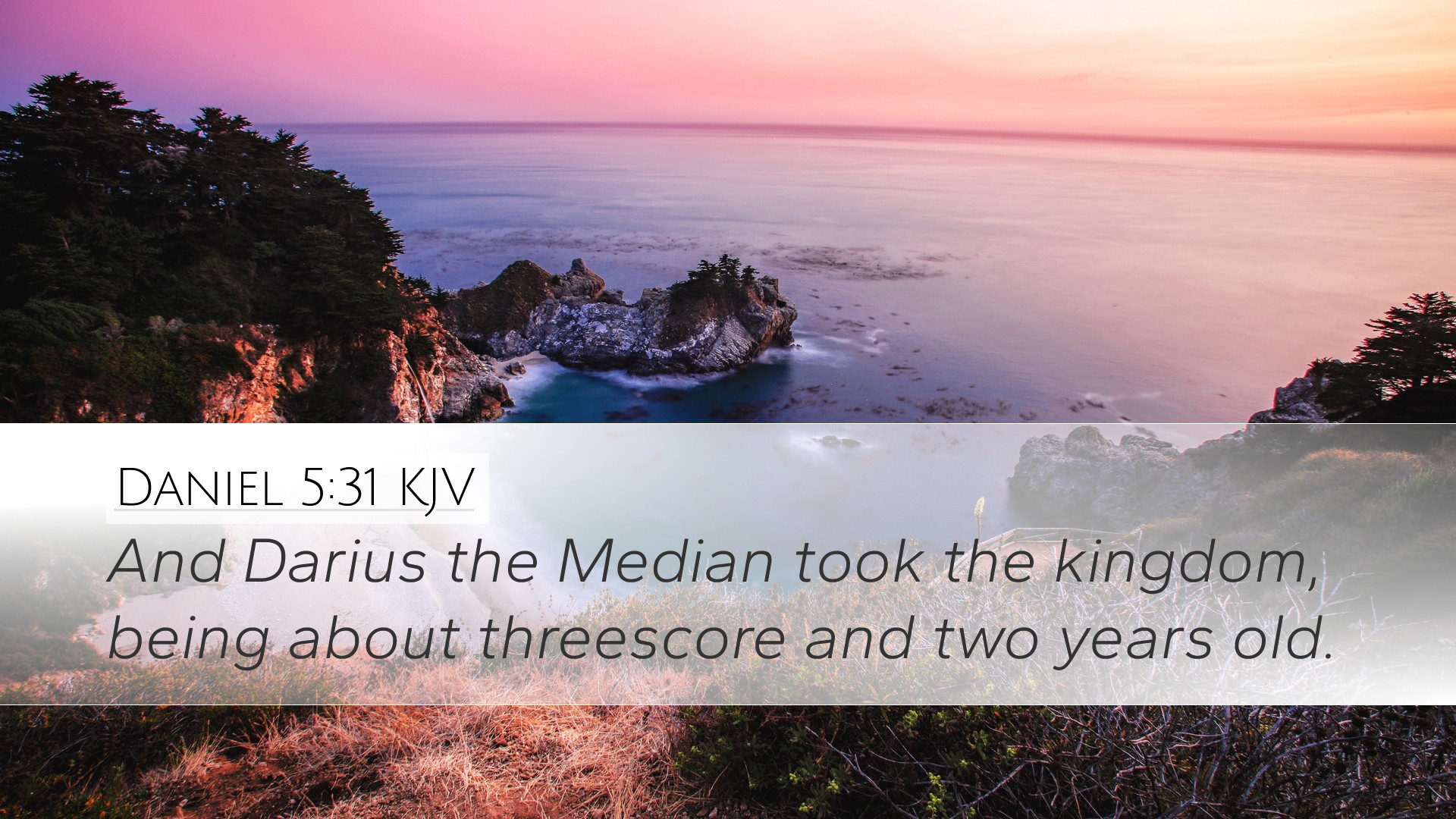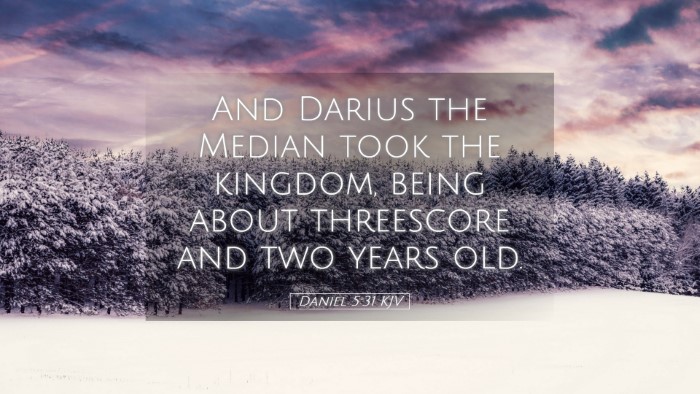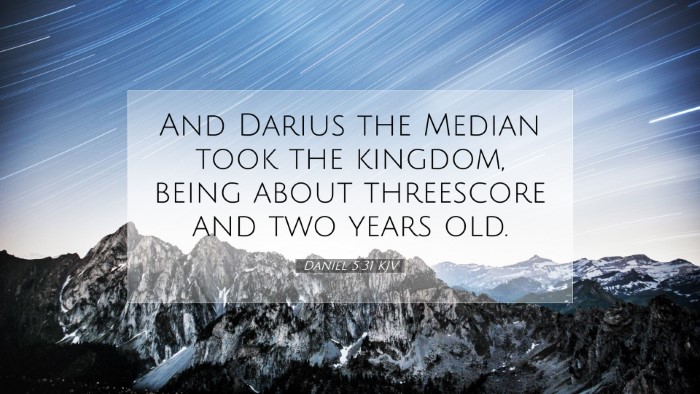Commentary on Daniel 5:31
Bible Verse: "And Darius the Median took the kingdom, being about threescore and two years old." (Daniel 5:31)
Introduction
The account of Belshazzar’s feast and the subsequent fall of Babylon in Daniel 5 is pivotal in the narrative of the Exilic literature. Daniel 5:31 marks the transition of power from the Babylonian ruler to Darius the Median, indicating a significant historical and theological milestone. This commentary seeks to elucidate the meaning and implications of this verse through insights drawn from notable public domain commentaries such as those by Matthew Henry, Albert Barnes, and Adam Clarke.
Historical Context
The context of Daniel 5 is critical in understanding this verse. Belshazzar, a co-regent of Babylon, conducts a lavish feast amidst the impending doom foretold by the writing on the wall. The transition to Darius marks not only a political shift but a fulfillment of God’s sovereignty over nations and rulers.
Belshazzar’s Hubris
Matthew Henry portrays Belshazzar's actions as a dire manifestation of pride and presumption. In this celebration, he disrespected the God of Israel by using the sacred vessels from the Jerusalem temple, which foreshadowed the divine judgment that would soon culminate in his downfall.
Examination of the Text
Significance of Darius’ Ascendancy
Albert Barnes discusses the significance of Darius ascending the throne. Darius taking control symbolizes God's direct intervention in human affairs; He orchestrates the rise and fall of empires. Barnes notes that this act affirms the prophetic revelations within the Book of Daniel regarding the succession of world kingdoms.
The Age of Darius
Interestingly, the text mentions Darius being "about threescore and two years old." Adam Clarke emphasizes the inclusion of Darius' age as potentially significant; it reflects the experience and wisdom he brings to governance. This characteristic is contrasted against the recklessness of Belshazzar, highlighting a divine preference for righteous leadership.
Theological Implications
This transition reveals key theological implications regarding God’s sovereignty. The overthrow of a kingdom that had persecuted God's people signifies God’s ultimate control over history. Clarke argues that the narrative validates God’s prophetic revelations and underscores the biblical theme of divine justice.
Applications for Today
Lessons on Leadership
The character study of Darius and Belshazzar serves as a cautionary tale for modern leadership. Pastors and scholars may draw parallels between these historical figures and contemporary leaders who either acknowledge or defy divine authority in their roles. Leadership imbued with humility and reverence towards God leads to stability, as echoed in the events surrounding Darius' ascension.
God's Sovereignty in History
This verse invites reflection on the sovereignty of God in historical events. It reminds believers that no earthly power can rise without God's permission, and believers can take comfort in the knowledge that God orchestrates the affairs of humanity, maintaining His covenant and purpose throughout the ages.
Conclusion
Daniel 5:31 serves as a concise yet powerful reminder of divine sovereignty and the temporal nature of earthly kingdoms. The transition from Belshazzar to Darius is significant not just in the timeline of Babylonian history but in the overarching narrative of God’s redemptive plan. Pastors, theologians, and students of the Word are encouraged to contemplate the profound truths embedded in this passage, fostering a deeper understanding of God’s work in history and the implications for faith and leadership today.


